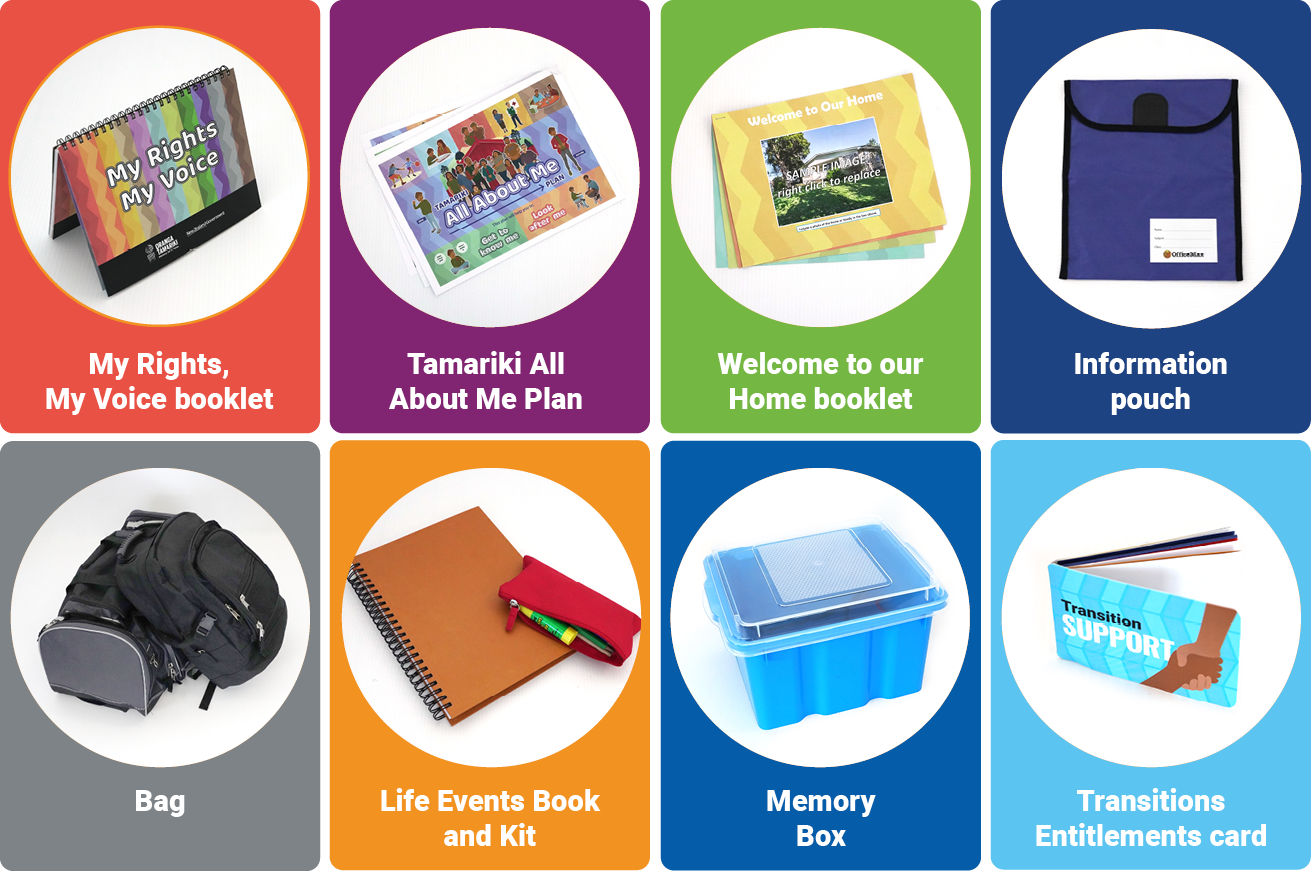Child statement of rights
We talked to rangatahi in care about what is important to them and what they needed, which helped us create the National Care Standards. These explain what your rights are when you are in care. Rights are things you should have to live a good life.

What do Care Standards mean for you?
The standards make sure you know what will happen and what you should get when you’re in care.
If you’re not getting the support you should be, the standards tell you how you can speak up and share your views so that changes can be made.
What happens when you come into care?
When you come into our care, your social worker will speak with you about why you’re in care, what decisions are being made about you, and what will happen while you’re in care. They’ll also encourage you to have your say, whakarongo and answer any questions you have.
Your social worker will continue to work with you to find out how you’re feeling, and what you need to be happy, do well and how you’d like your life to be.
They will write down some of the things you talk about, and then work with you and other important tāngata in your life to make a plan to help you. You get a copy of the plan.
You have the right to live somewhere safe
Your social worker must tell you how you should be treated by your caregivers. They will check the caregiver, their whānau and their whare to make sure you’ll be safe and cared for. They will also make sure your caregiver has a plan in place about how to support you.
Your social worker will tell you about your caregivers and help you to meet them before you go to live with them if possible.
What happens while you’re in care?
Your social worker will visit you often. They will check you are safe, being looked after, having fun and spending time with people you know.
They will help you, your whānau, hapū, iwi, and other people who are important to you, to stay close and connected. They will also make sure you learn about your whakapapa, so you know and can be proud of where you come from. And help you to know about and be part of your culture, reo and religion.
If you’re not doing well or things have changed for you, your social worker will talk to you about how to make things better. Your plan will be updated with any big changes.
If your social worker hears about something from anyone, including you, that makes them think you might not be safe or are not being well cared for, they will help you.
Things to support you in care
Your social worker will make sure you get:
- My Rights, My Voice booklet – Tells you about what your rights are while you’re in care.
- A copy of your All About Me Plan – Includes information about you and how you’ll be supported while you’re in care. Your social worker will make sure you have a copy you can understand.
- Welcome to our Home booklet – Your caregiver creates this for you to show you what their home is like before you move there, so you’ll know what to expect.
- Information pouch – To keep your important documents together, like your My Rights, My Voice booklet and your All About Me Plan.
Bag – To put things in when you move around. - Life Events Book and Kit – Use this book to record your achievements like winning a race, relationships such as with your friends or your Nan and important events like birthdays.
- Memory Box – Use this to store things you treasure and taonga so they’re kept safe and you can easily take them with you wherever you go.
- Transitions Entitlements card – This has information about what support services you can get when you’re transitioning out of care. You need to be at least 15 for this.

Learn more about your rights
The child friendly Statement of Rights document sets out what should happen:
- when you come into care
- while you're in care
- if you move while in care or if you are leaving care soon
- who is there to support you (your advocate)
- if something is not right
- when information is shared about you with other people.
-
Child friendly statement of rights - Te Reo Māori
Explains what your rights are when you are a child or young person in care. This version is in Te Reo Māori
Pdf, 232 KB
-
Child friendly statement of rights
Explains what your rights are when you are a child or young person in care.
Pdf, 257 KB
- Your rights in care – playlist of 7 animated videos | YouTube , opens in a new window
- Your rights while in care – a message from care experienced rangatahi | YouTube , opens in a new window
If you're not getting what you should
You can talk to your social worker or caregiver anytime you need to.
Under the Care Standards you also have a right to make a complaint, share a worry and give feedback.
Published: June 28, 2019

